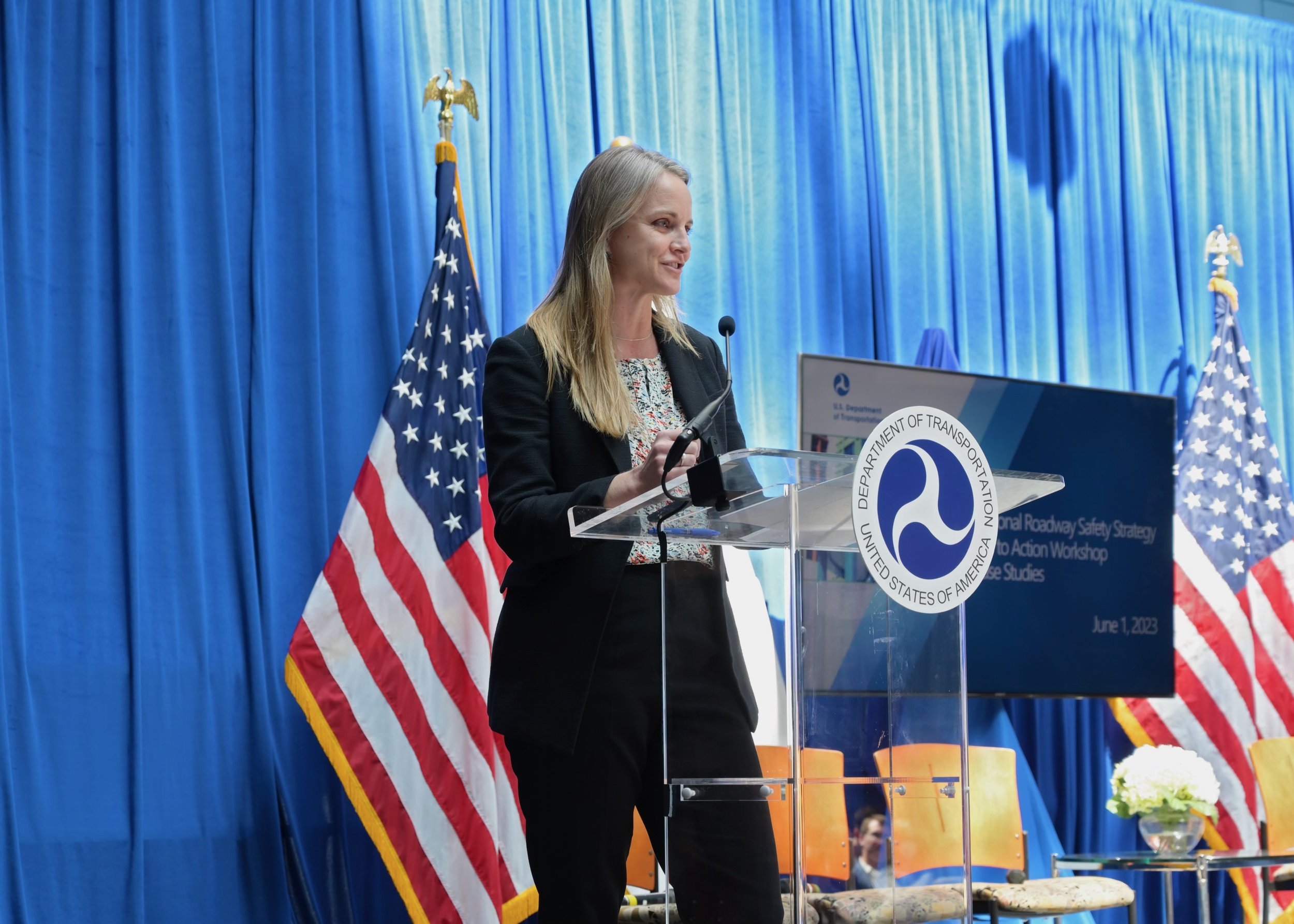EMILY SCHWENINGER
Emily Schweninger is a public health expert working at the intersection of public health, systems development, and equity. With twenty years of professional experience across the globe, Emily has led policy coordination and adoption of strategic plans at the national level in a number of countries, successfully applied global best practices in context-specific conditions, developed and expanded life-saving services, and created critical communications strategies to support program and country goals.
Over two decades, she has honed and leveraged her skills in multi-sectoral coordination, policy development, coalition building, advocacy, facilitation and training, and project administration and management to build stronger, healthier, more resilient communities large and small.

In her most recent role as Senior Policy Advisor for Transportation Health and Safety in the Office of the Secretary at the U.S. Department of Transportation, Emily led coordination of the Department’s ambitious and groundbreaking National Roadway Safety Strategy and the supporting Call to Action with external partners and stakeholders. She also advanced roadway safety across the country through the development, launch, and management of the Safe Streets and Roads for All Discretionary Grant Program that will allocate $5 billion over five years for local communities to create and support comprehensive safety action plans that save lives. Additionally, Emily coordinated the DOT COVID Response Team and other health related initiatives for the Department.
Emily previously served as the Director of Thriving Communities at Smart Growth America, directing diverse programming and research for the National Complete Streets Coalition, Rural Communities Development, and other projects within the Thriving Communities team, focusing on the intersection of health and equity in the built environment.
Emily began her public health career in earnest in New Orleans and the Gulf South Region in 2005, when she evacuated from Hurricane Katrina and returned to the area to work in disaster response and recovery from the devastating storm. After the region stabilized, Emily worked in global health for almost a decade. She conducted research on innovative health interventions across Peru, Bolivia, and Ecuador. She coordinated a CDC project in Mozambique with Global Health Communication to expand access to services for people at risk for infectious diseases. In her most recent international work, Emily managed UNICEF’s HIV portfolio in Equatorial Guinea for almost four years, where she supported the Government in developing a national strategy to reduce HIV, coordinating across seven ministries and diverse stakeholders including the private sector and local NGOs.
Emily holds a Bachelor of Arts from the University of North Carolina at Chapel Hill and a Master of Public Health from Tulane University’s School of Public Health and Tropical Medicine.